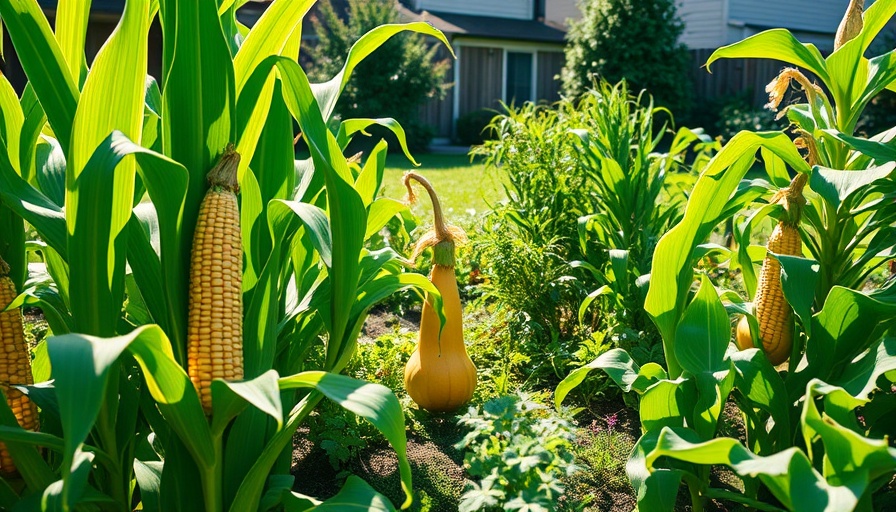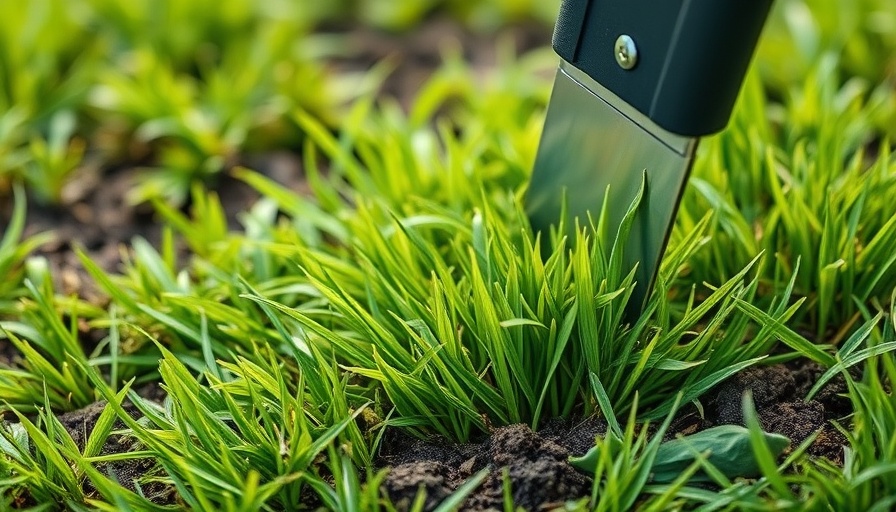
The Cultural Heritage Behind the Three Sisters Garden
The Three Sisters garden method is a treasured practice originating from Native American tribes, especially the Iroquois. This sustainable and mutually beneficial planting system effectively uses space while ensuring a variety of nutritional offerings. Corn, beans, and squash thrive in harmony, fostering a living ecosystem that not only produces abundant food but also enriches the soil. By understanding the significance of this ancient technique, homeowners can appreciate the deeper reason for its implementation and the lasting benefits it provides.
The Science of Companion Planting to Enhance Your Garden
Companion planting enhances the growth of plants when they are placed in proximity. In the Three Sisters setup, each plant aids the others: corn supports beans, beans enrich the soil, and squash acts as a protective ground cover. This symbiosis encourages a vibrant and productive garden ecosystem. Research shows that employing such techniques can cut down the reliance on synthetic fertilizers and pesticides, providing a natural alternative that benefits both the environment and the produce quality.
Selecting the Right Varieties for Your Three Sisters Garden
Choosing the right plant varieties is crucial to the success of your Three Sisters garden. For corn, open-pollinated heirloom types such as ‘Golden Bantam’ or ‘Stowell’s Evergreen’ are recommended for their sturdiness. When selecting beans, opt for climbing varieties like ‘Blue Lake’ or ‘Kentucky Wonder.’ Squash varieties should have sprawling habits, such as ‘Yellow Crookneck’ or ‘Butternut,’ to provide excellent ground coverage. Understanding your local climate, especially if you reside in areas with seasonal extremes like Michigan, will ensure optimal growth.
Essential Steps to Prepare Your Garden Soil
Before planting, it is imperative to prepare your soil adequately. Start by conducting a soil test to evaluate pH and nutrient levels; ideally, your garden soil should range between a pH of 6.0 to 7.0 for optimal plant health. Enrich your soil with organic matter to boost fertility, laying a strong foundation for your Three Sisters garden. Incorporating nutrient-rich compost can significantly enhance the soil’s structure and sustain your plants' growth.
Managing Your Three Sisters Garden Throughout the Seasons
After you plant your Three Sisters garden, ongoing management is essential. Regularly check for pest issues and employ natural pest control methods when necessary. Companions like marigolds can deter pests, providing an organic solution that keeps your garden thriving. Additionally, maintaining consistent moisture levels is vital, especially for regions susceptible to dry spells; mulching around your plants can help retain moisture during hot summer months.
Embrace Sustainable Practices for Your Outdoor Spaces
As homeowners and property managers looking to enhance the aesthetics and functionality of your outdoor areas, adopting the Three Sisters planting technique can offer both beauty and resilience. This method not only provides a diverse harvest but also promotes environmental sustainability. Whether you maintain a modest backyard garden or manage larger properties, integrating these plants can optimize your outdoor space, reflecting a commitment to eco-friendly practices.
Consider initiating your Three Sisters garden this season! Embracing this ancient planting method not only beautifies your landscape but also fosters a connection to sustainable living and community heritage.
 Add Row
Add Row 
 Add
Add 


 Add Row
Add Row  Add
Add 
Write A Comment